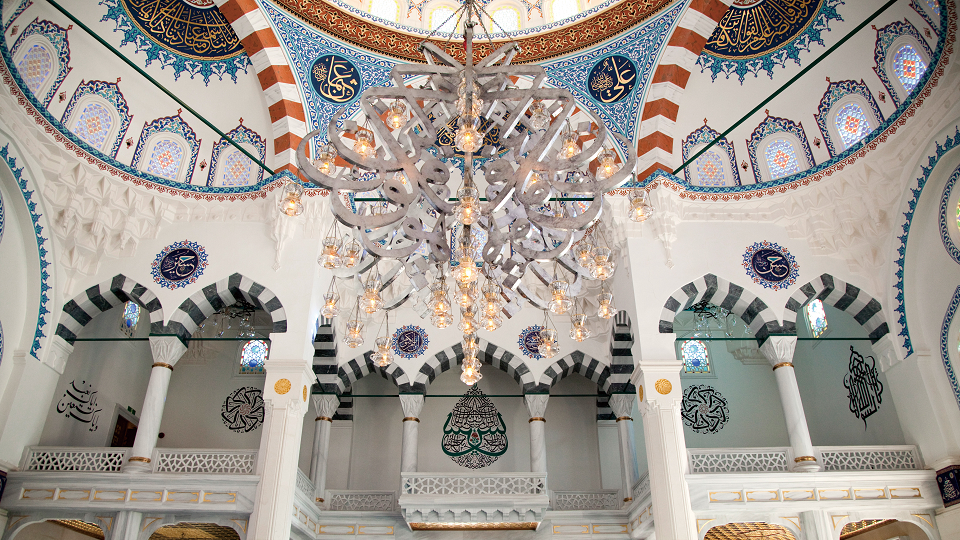PIETY, HAYA (PIOUS SHYNESS), AND HIJAB
Honorable Muslims!
Allah the Almighty (swt) calls on us in the Holy Qur’an as follows, “O children of Adam! We have provided for you clothing to cover your nakedness and as an adornment.”1 This verse tells us that the blessings that satisfy our needs for clothing are bestowed upon us by the Almighty Allah, and that it is incumbent upon us to be grateful to Him (swt). At the same time, this verse also tells us that clothing is a beauty and elegance. The remainder of the verse reads as follows, “However, the best clothing is righteousness. This is one of Allah’s bounties. So perhaps you will be mindful.”2
Dear Believers!
The clothing of righteousness is faith and decency. The clothing of righteousness is to grasp the meaning of clothing that covers the body. It is the sense of living a virtuous life by staying away from any mistake that may harm the body and the soul.
Dear Muslims!
Haya (pious shyness) is about shying away from doing something unpleasant and about feeling embarrassed about committing a sin. Haya is the essence of Islamic morality; it is a call for morality for all humanity since the teachings of the first prophet. According to Islam, one of the greatest wisdoms behind clothing is that it is a requirement of haya both towards people and Allah (swt). For this reason, our Prophet (saw) says, “Allah is modest and covering. He loves modesty and covering.”3
Dear Believers!
Hijab is a manifestation of the resolve to live in the direction pointed out by Allah (swt) and His Messenger (saw). When we talk about hijab, we mean a shared concept that appeals to both men and women, and a high virtue. The idea that wearing garments or other forms of covering is exclusive to women solely or that it just involves wearing a headscarf is a great misconception. Because clothing or covering is a human principle and a sign of respect for privacy.
Dear Believers!
It is stated in the Holy Qur’an as follows, “O Prophet! Tell the believing men to lower their gaze and guard their chastity. That is purer for them. Surely Allah is All-Aware of what they do.”3 In the next verse, it is stated as follows, “And tell the believing women to lower their gaze and guard their chastity. And not to reveal their adornments except what normally appears. Let them draw their veils over their chests.”4 The fact that these two commandments are mentioned one after the other suggests that both men and women are obligated to be modest and cover themselves. Blissful are those who prefer, based on their free will, to live a modest, decent, and dignified life! Blissful are those who live with the awareness of servitude to Allah (swt) and come out as gainers both in this world and in the Hereafter!
[1] A’raf, 7/26.
[2] A’raf, 7/26.
[3] Nasa’i, Ghusl, 7.
[4] Nur, 24/30-31.
FRIDAY KHUTBA OF TOKYO CAMII “PIETY, HAYA (PIOUS SHYNESS), AND HIJAB”


